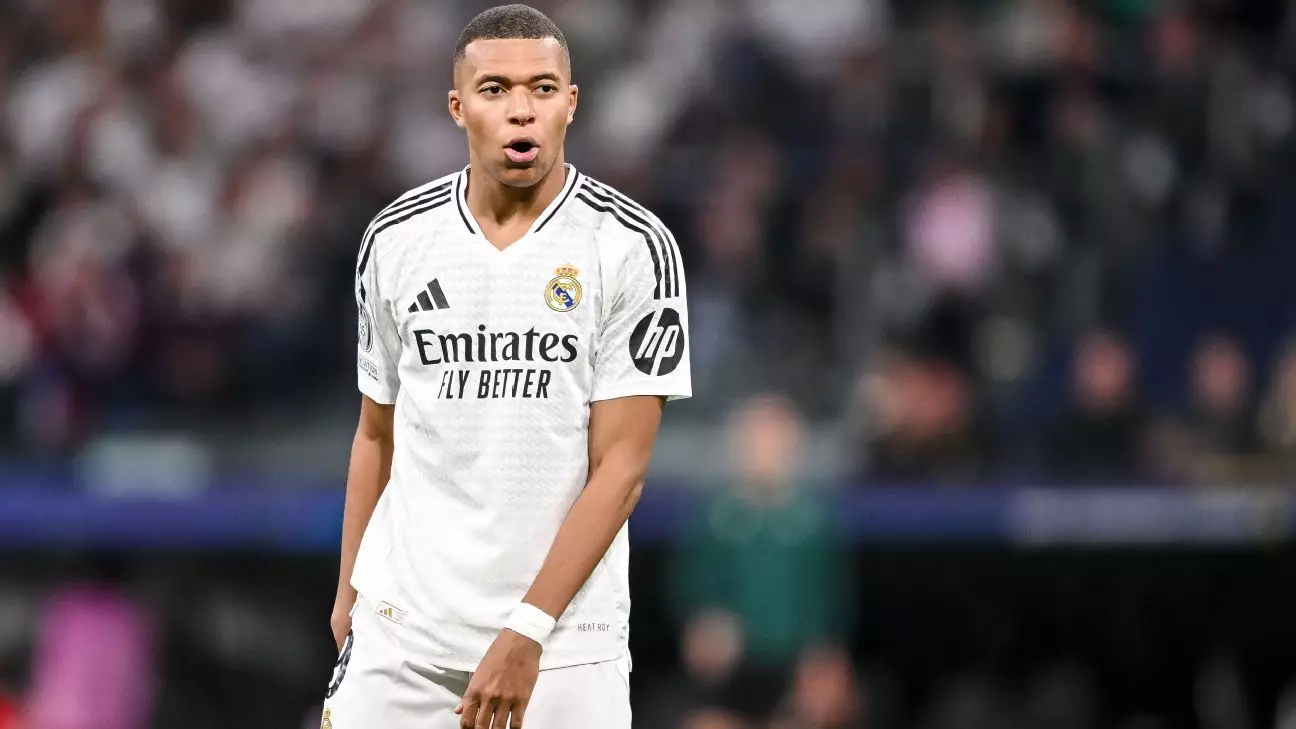The ongoing saga between Paris Saint-Germain (PSG) and Kylian Mbappé has taken a significant turn, thrusting the world of football into a whirlwind of legal complexities. Following a ruling from the Ligue de Football Professionnel (LFP) in favor of the French forward, PSG has opted to escalate the issue to the courts, intensifying an already bitter conflict. The crux of the matter lies in Mbappé’s claim for approximately €55 million in unpaid salary and bonuses, a figure that indicates not only his talent on the pitch but also the high stakes involved in professional football contracts.
The legalities underpinning this dispute are emblematic of both the evolving nature of player contracts and the obligations that clubs hold towards their players. Mbappé has remained largely silent amidst the fray, yet his resolve to pursue compensation reflects a growing assertion of player rights and concerns over contractual integrity in football. PSG, on the other hand, contends that Mbappé’s contract was modified legally, suggesting that he has contradicted his prior commitments by moving to Real Madrid during the last transfer window. This conflicting narrative sets the stage for a potentially precedent-setting court case.
Responses from Stakeholders
Following the LFP’s ruling, PSG’s statement indicates a firm stance on the issue, planning to contest the decision legally while still expressing a desire for an “amicable solution.” The complexity of the case is underscored by statements from both Mbappé’s camp and PSG, which highlight the nuanced and interwoven nature of football contracts. This situation is exacerbated by the fame and financial implications associated with a player of Mbappé’s magnitude—one of the best in the world—drawing significant attention not only from fans but also from legal scholars and sports analysts alike.
The Impact on All Parties Involved
The potential repercussions of this legal dispute extend far beyond the two parties directly involved. For PSG, a resolution that does not favor the club could set a troubling precedent whereby players feel emboldened to challenge their employers, possibly leading to increased tension in contract negotiations across the league. For Mbappé, winning the case would not only bolster his financial standing but could also serve as a defining moment in the evolving relationship between top-tier players and their clubs.
As this case prepares to enter the courts, the football world watches closely. The outcomes of such disputes can shape the landscape of professional football, influencing future contracts and players’ rights. Both PSG and Mbappé have their legacies at stake, and how this conflict is resolved could have lasting implications. Fans, analysts, and legal experts alike will be keenly observing how this situation unfolds, as it reflects broader trends in the commercialization and legal scrutiny of modern football. Whether the battle will culminate in a resolution that satisfies both sides or devolve into a protracted legal premiership remains to be seen, yet one thing is certain: the stakes are higher than ever in this age-old game of cat and mouse between footballers and their clubs.

Leave a Reply